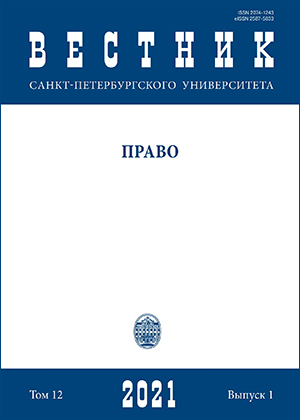Obtaining electronic information on criminal cases within the framework of international cooperation
DOI:
https://doi.org/10.21638/spbu14.2021.103Abstract
The explosive growth of information and communication technologies, which has affected human social communication institutions, has become commensurate with the increase in potential risks to the security and rights of citizens. The authors of the article attempt to highlight the issues of international cooperation between law enforcement agencies of the Russian Federation and other countries in the framework of obtaining electronic information that is important for proving criminal cases. Attention is paid to procedures for ensuring the collection and use of electronic data in the response to crime occurring in the current fine line of confidentiality of privacy and security. Despite the mutual agreements signed between many countries of the world, the practical implementation of regulations that ensure the provision of electronic information in the framework of international cooperation is currently fraught with certain problems. Meanwhile, in the context of countering such dangerous phenomena for the world community as terrorism, extremism, drug trafficking, weapons, and people, a single mechanism for exchanging information stored on a gigantic scale on the servers of Telecom operators and providers has not yet been developed. The actual search for data stored on mobile devices usually requires a warrant in common law countries. In situations where there is a significant risk of loss of evidence, such as when data detection and other computer forensics tools are actively used, some jurisdictions allow law enforcement agencies to perform limited searches of devices without a warrant due to alleged data vulnerability. Another problem is the retention of stored data, since different practices apply in different countries. In this regard, it is essential that investigators and prosecutors are well informed about geo-specific data mapping issues, including “embargoes” or bans on the exchange of computer information.
Keywords:
international cooperation, international agreement, procedural actions, investigative actions, computer information, legal assistance, electronic evidence, criminal proceedings, electronic messages, subscriber information, competent authorities
Downloads
References
Downloads
Published
How to Cite
Issue
Section
License
Articles of "Vestnik of Saint Petersburg University. Law" are open access distributed under the terms of the License Agreement with Saint Petersburg State University, which permits to the authors unrestricted distribution and self-archiving free of charge.






